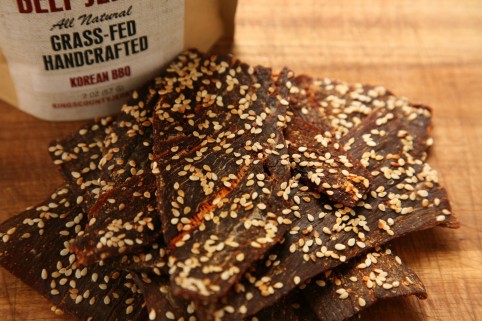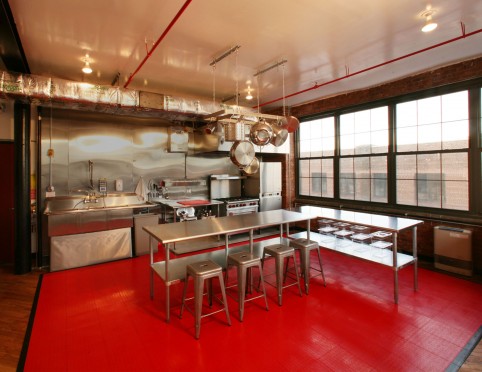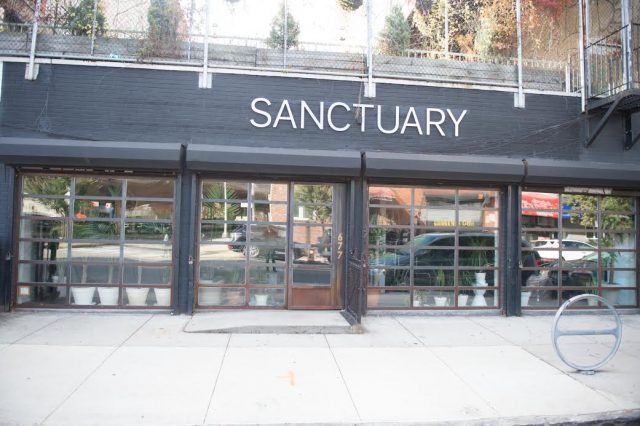
Yeah, we know the Brooklyn food scene has jumped the pasture-raised shark, but it’s not like everyone’s going to be abandoning Smorgasburg for Wendy’s any time soon. At this point it looks like blood orange donuts and Bulgogi tacos are here to stay. Cooking up your own scheme for the next banh mi stand? Before you quit the corporate ranks (or your coffee shop job) and join the pork bun party, know that the food business is probably a lot riskier, more demanding and, yes, expensive than whatever gig you may be leaving behind. And be prepared to spend less time in the kitchen and more with accountants, city permit agents and suppliers. Still curious? Here, a handful of seasoned Brooklyn foodtrepreneurs on what you need to know before taking the po’ boy plunge.
1) Kitchen space is hard to find
“If you make a food product, you need to do it in a manufacturing zone. Unfortunately, most of the spaces available in these zones are 10,000 square foot, diesel-stained warehouses – totally unrealistic for a start-up food business. Of course, after finally finding a workable location, we had to raise a ton of money to build the kitchen and start the business. Fortunately, friends and family believed in us and came through.” — Chris Woehrle, King’s County Jerky

2) The city will kick your butt
“I’ve spent countless hours filling out forms, waiting in lines at city licensing centers, applying for permits, getting certified checks, notarizing documents, attending mandatory classes, taking exams, etc. It’s an extremely complex and confusing process. I really feel for the people trying to navigate that shitshow who don’t speak very good English.” — Grady Laird, Grady’s Cold Brew
3) You will be a slave to your po’ boys
“I really underestimated how time-consuming the whole thing would be. The business is so engrossing, I can’t even get away for a weekend now; I miss relaxation. And I feel bad for my family. My poor wife has been forced to listen to me talk constant coffee for over a year now, and I can never find enough time with my son..” — Grady Laird
4) Find an untapped market“I knew that chutney wasn’t on every grocery list along with eggs and milk. I’m not peddling salsa or preserves, something everyone is completely familiar with. I did however believe there was a market for carefully crafted condiments and was familiar w/ NY’s open-minded palettes so went into this assuming SOMEONE would like it. I’ve been so happy with the response.” — Drake Page, The D.P. Chutney Collective

5) Sleep with someone at Smorgasburg
“Smorgasburg, is the perfect place to play ‘small ball.’ You’ve got a carefully curated market, which promises robust advertising and big, consistent crowds. If you can get in to the market — and that’s a big ‘if’ — you’re looking at approximately $200/day for the space. All around, it was a more attractive and affordable way to start our small business than a food truck, which is impossible at this point. Overall, starting up cost about just under $2,000.” — Neill Holland, Bon Chovie
6) Don’t expect to get rich
“For us, the ongoing difficulty of the business is scaling. There is a significant production price tag that accompanies each level of output. We invested in our new store/commercial kitchen in Prospect Heights, but the opening caused so much buzz that we are already having difficulty keeping up with the demand. But our margins are lean, so it’s hard to make the jump. Good sales and shelf placement do not equal big bucks.” — Elizabeth Valleau, Empire Mayonnaise
One Response to
Leave a Reply




Great article! Way to exploit your sweet spot, Brokelyn. Give us more like this.